In this comprehensive guide, we'll explore the intricacies of pre-season soccer, offering expert insights, training tips, and strategies to ensure your team is primed for success.
Importance of Pre-Season Soccer
The Significance of Physical Preparation During the pre-season, players undergo rigorous physical conditioning to enhance their endurance, strength, and agility. This phase is instrumental in minimizing the risk of injuries and building a solid foundation for the demanding season ahead.
Mental Conditioning for Peak Performance In addition to physical prowess, mental fortitude is equally vital. Pre-season allows players to develop mental resilience, focus, and a winning mindset. Techniques such as visualization and goal-setting are key components in achieving peak performance.
Tactical Development for Cohesive Play Pre-season provides an invaluable opportunity to fine-tune tactical strategies. Coaches work on formations, defensive structures, and attacking patterns to ensure seamless coordination on the field. This phase sets the stage for a well-oiled, cohesive team.
Ultimate Pre-Season eBook
Ignite your season with the Ultimate Pre-Season Soccer eBook's specially curated 4-week program catering to age groups U4-U18! Crafted to suit each developmental stage, this guide is an essential tool for coaches, parents, and players alike, ensuring a robust kickoff to the upcoming soccer season.
Download NowEffective Pre-Season Training Program
Setting Clear Objectives A successful pre-season begins with well-defined objectives. Coaches must identify specific areas for improvement, whether it's fitness levels, technical skills, or tactical understanding. Clear goals serve as a roadmap for structuring training sessions.
Balancing Rest and Intensity Finding the right balance between rest and intensity is crucial. Players need adequate time to recover and rejuvenate, ensuring they are physically and mentally prepared for each training session. Gradual progression in intensity minimizes the risk of burnout or overuse injuries.
Incorporating Periodization for Optimal Performance Periodization involves strategically planning training phases to peak at specific times during the season. It allows for systematic progression, ensuring players reach their maximum potential when it matters most. Coaches must carefully plot out the pre-season timeline to achieve optimal results.
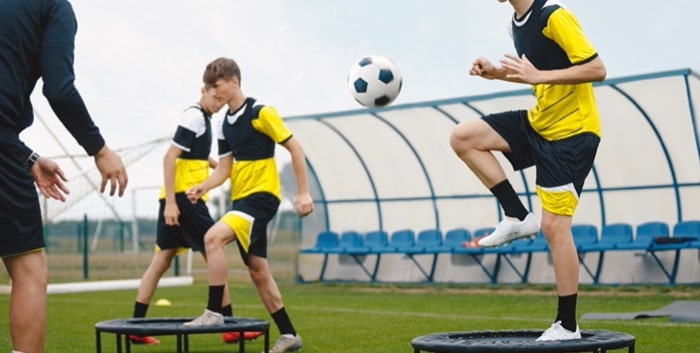
Fitness and Conditioning Drills
Endurance Building for Stamina Endurance is the backbone of a successful soccer player. Pre-season focuses on exercises that improve cardiovascular fitness, enabling players to cover ground efficiently throughout the match. Long-distance runs, interval training, and aerobic drills are essential components.
Speed and Agility Training for Explosive Performance Soccer demands bursts of speed, rapid changes in direction, and quick reflexes. Pre-season drills target speed and agility, enhancing a player's ability to accelerate, decelerate, and navigate the field with precision. Cone drills, ladder exercises, and shuttle runs are integral in developing these attributes.
Strength and Power Workouts for Dominance Physical strength provides a competitive edge on the field. Pre-season includes resistance training to build muscle mass, increase power, and improve overall athleticism. Squats, deadlifts, plyometric exercises, and core workouts form the foundation of strength conditioning.
Skill Refinement and Technical Drills
Passing and Receiving Drills for Precision Accurate passing and controlled receiving are fundamental skills in soccer. Pre-season drills focus on honing these abilities, emphasizing crisp, precise passes and first-touch control. Exercises like rondos, passing grids, and small-sided games enhance technical proficiency.
Shooting and Finishing Techniques for Goal-Scoring Prowess Goal-scoring prowess is a coveted skill in soccer. Pre-season training sessions are dedicated to refining shooting techniques, both for power and accuracy. Drills involving various shooting scenarios, volleys, and finishing under pressure instill confidence in front of goal.
Dribbling and Ball Control Exercises for Mastery Dribbling is an art that separates exceptional players from the rest. Pre-season drills emphasize close ball control, quick changes of direction, and evasive maneuvers. Players engage in cone dribbling, one-on-one duels, and skill-based challenges to elevate their dribbling proficiency.
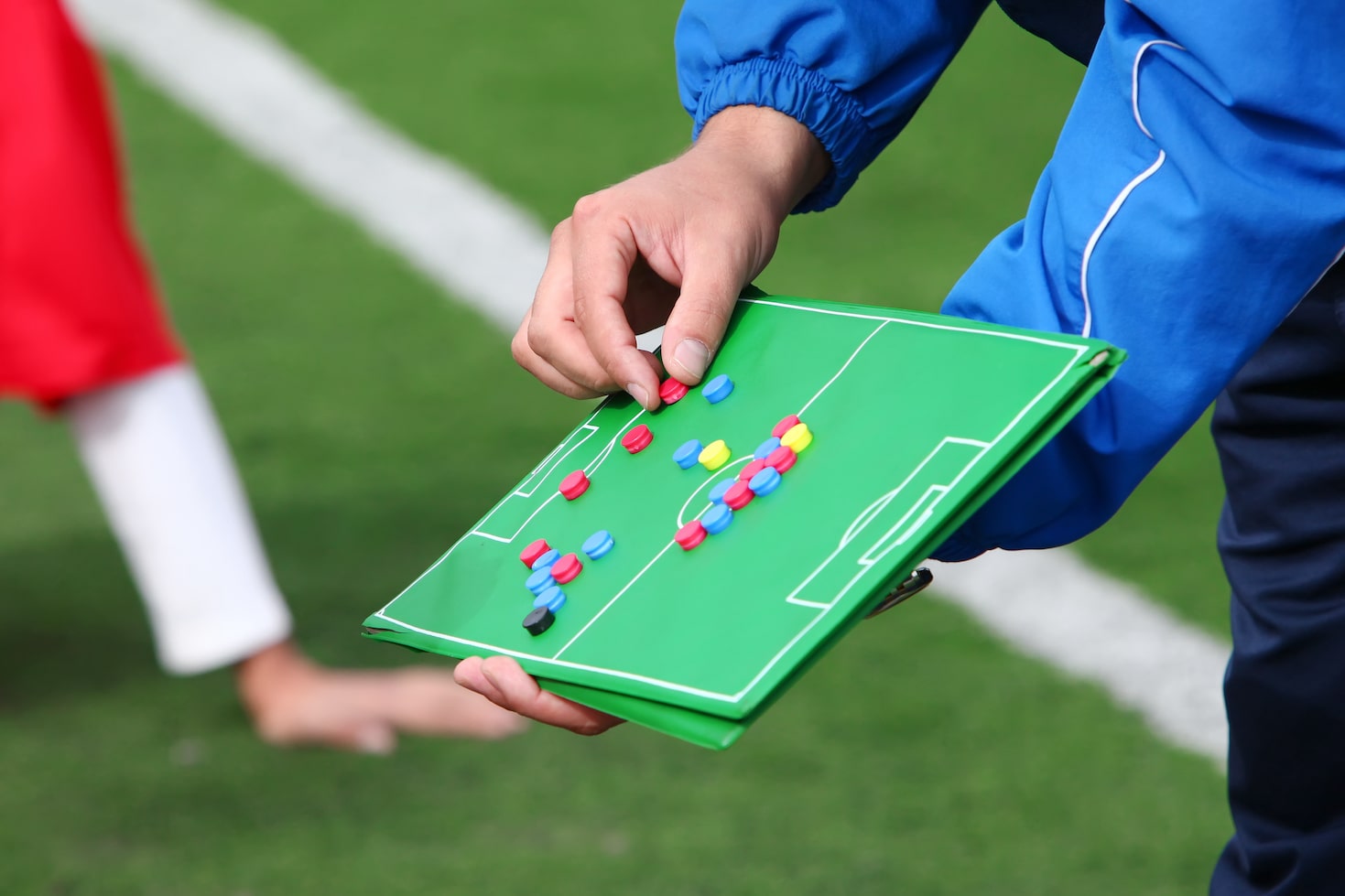
Tactical Strategies for Pre-Season
Formations and Systems for Tactical Flexibility Pre-season provides the platform to experiment with different formations and systems of play. Coaches analyze player strengths and adapt strategies accordingly. This phase is crucial in identifying the most effective tactical approach for the team.
Defensive Shape and Organization for Resilience Solid defensive structures are the backbone of a successful team. Pre-season drills focus on positioning, marking, and teamwork in the defensive third. Players develop an understanding of their roles and responsibilities, ensuring a cohesive backline.
Attacking Patterns and Combinations for Creativity A dynamic attack is built on creativity and intelligent movement. Pre-season drills emphasize attacking patterns, off-the-ball runs, and combination play. Players learn to read each other's movements, creating fluid, unpredictable attacks that trouble opposition defenses.

Injury Prevention and Recovery
Warm-up and Cool-down Routines for Injury Prevention Proper warm-up and cool-down routines are non-negotiable in pre-season training. Warm-up drills and exercises increase blood flow, loosen muscles, and prepare the body for exertion. Conversely, cool-down activities aid in reducing muscle soreness and promoting recovery.
Rehabilitation Exercises for Injury Management Injuries are an unfortunate part of any sport. Pre-season provides an opportunity for players to rehabilitate and strengthen previously injured areas. Coaches work closely with medical staff to implement tailored rehabilitation programs, ensuring players return to full fitness.
Proper Nutrition and Hydration for Optimal Performance Nutrition is a cornerstone of pre-season preparation. Players require a balanced diet rich in carbohydrates, proteins, and essential nutrients to fuel their training sessions. Adequate hydration is equally crucial to maintain performance levels and prevent fatigue.

Mental Preparation and Team Bonding
Goal Setting and Visualization for Focus Setting clear, achievable goals is a powerful motivator. During pre-season, players establish individual and team objectives, providing a sense of direction and purpose. Visualization techniques further reinforce positive mental attitudes and help players envision success.
Communication and Leadership for Cohesion Effective communication is the glue that holds a team together. Pre-season emphasizes clear, concise communication on the field. Captains and leaders emerge, taking charge and fostering a culture of unity and accountability.
Team Building Activities for Camaraderie Building strong team dynamics is essential for success on the pitch. Pre-season often includes team-building exercises and activities that foster trust, camaraderie, and a sense of belonging. These experiences translate into a tighter-knit, more cohesive unit.
Friendly Matches and Scrimmages
Assessing Player Performance in Real Game Situations Friendly matches and scrimmages are integral components of pre-season. They provide coaches with an opportunity to assess player performance in realistic game scenarios. Observations help in fine-tuning strategies and identifying areas for improvement.
Fine-tuning Tactics for Seamless Execution Friendly matches serve as a platform to implement and refine tactical strategies. Coaches analyze player movements, decision-making, and adherence to team instructions. Adjustments are made to ensure seamless execution in competitive fixtures.
Building Match Fitness for Endurance Match fitness is a distinct aspect of player preparation. Friendly matches gradually increase in intensity, allowing players to acclimate to the demands of competitive play. This progressive approach ensures peak physical condition when the season kicks off.
Tracking Progress and Making Adjustments
Data Analytics and Performance Metrics for Evaluation Utilizing data analytics provides valuable insights into player performance. Metrics such as distance covered, sprinting distances, and passing accuracy offer objective measures of progress. Coaches leverage this information to tailor training programs and address specific needs.
Listening to Player Feedback for Individualized Coaching Player feedback is a valuable resource for coaches. During pre-season, open communication channels allow players to express their concerns, goals, and areas of focus. This feedback loop enables coaches to provide individualized attention and support.
Adapting Training Methods for Optimal Results Flexibility is key in pre-season preparation. Coaches must be willing to adapt training methods based on player responses and evolving circumstances. This agility ensures that the team remains on course for a successful season.
Conclusion
A comprehensive pre-season regimen is the cornerstone of a successful soccer campaign. By prioritizing physical conditioning, skill development, tactical awareness, and team cohesion, coaches and players lay the groundwork for triumphs on the pitch. Remember, pre-season not only elevates on-field performance but also minimizes the risk of injuries. Invest the time and effort into preparing your team effectively, and watch them excel when it counts. Here's to a fantastic pre-season and a triumphant season ahead!


Improve Your GameJust 1.99 p/m
Exclusive drills and sessions, get involved today!
- 100’s of Drills
- Coach to Camera Videos
- Sessions from Pro’s
- Industry Leading Advice
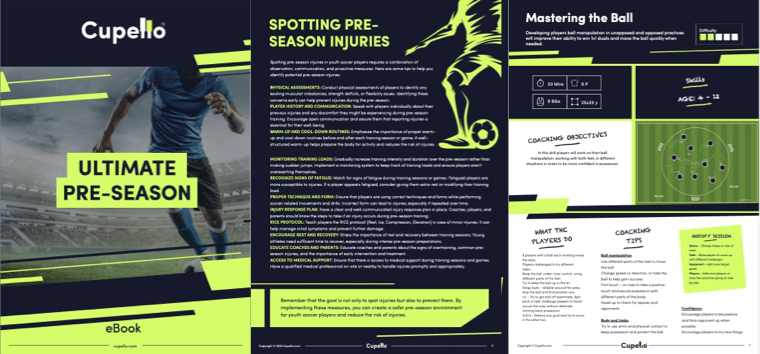

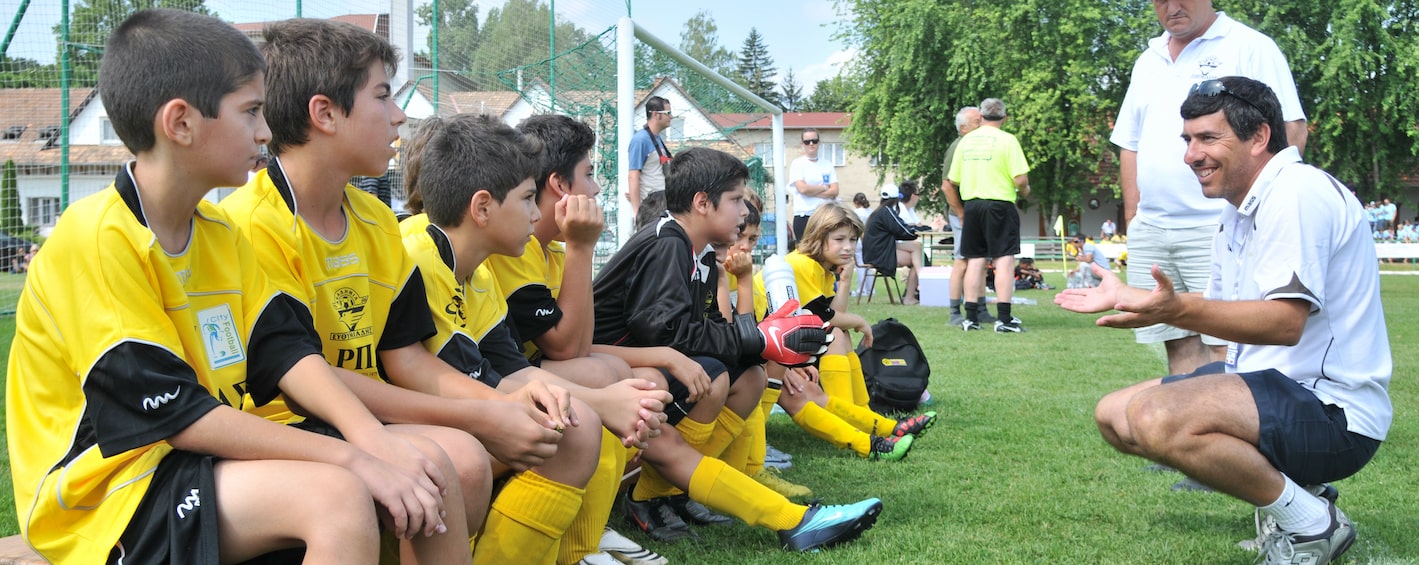
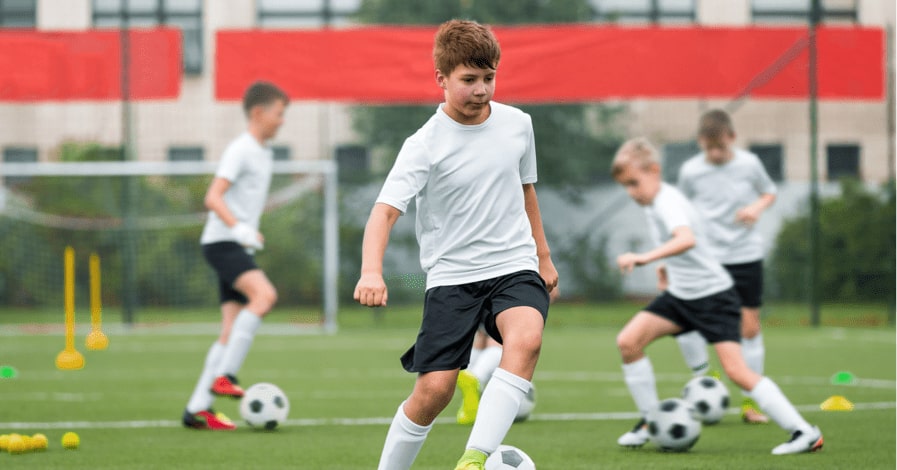
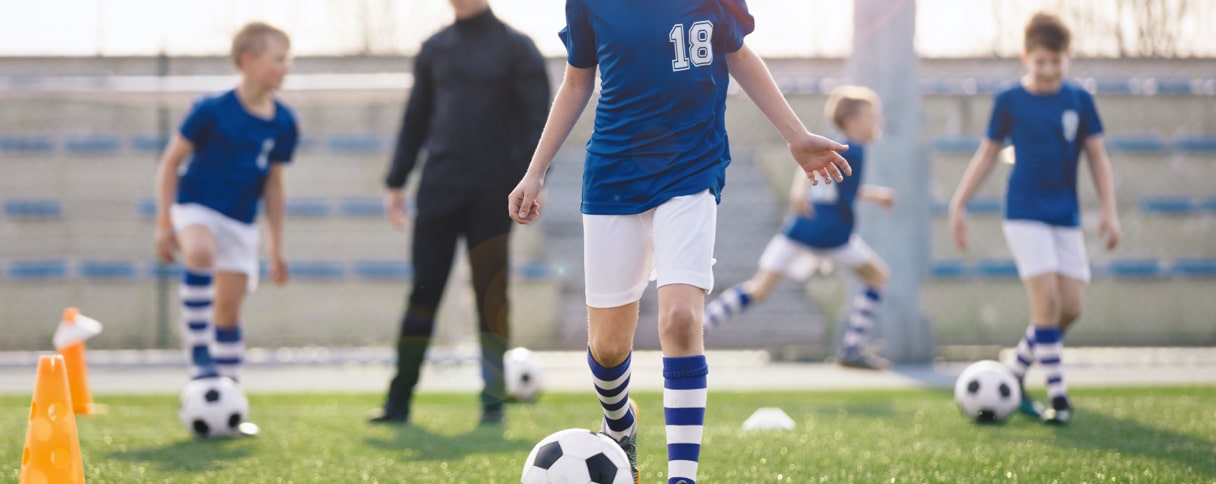

Cupello
UEFA B Coach, FA Level 3, FA Youth Modules 1, 2 and 3, Coerver Youth Diploma, SPAIN: Catalan Football Federation Smart Football, USA: United Soccer Coaches diploma. Sports journalist for the Sunday Mirror published author of several volumes of coaching books & international lecturer on soccer.